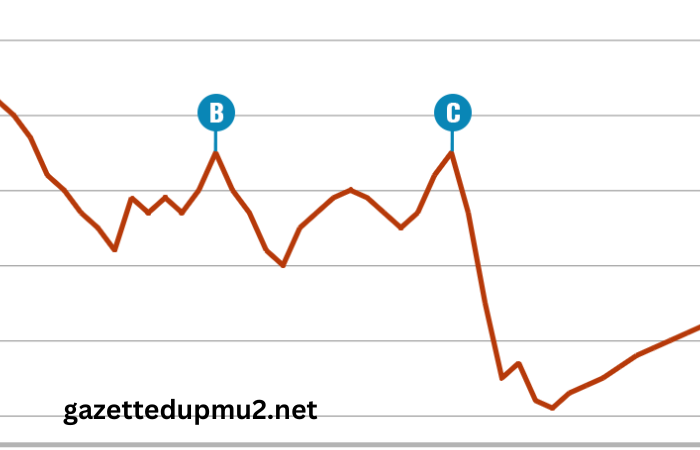Navigating the Digital Frontier: Tech Trends and Transformations

In an era defined by rapid technological advancement, staying ahead of the curve is not just a choice; it’s a necessity. The digital frontier is continually shifting, presenting both opportunities and challenges for individuals and businesses alike. To navigate this dynamic landscape effectively, one must not only be aware of current tech trends but also anticipate future transformations. In this article, we’ll explore the key tech trends and transformations shaping the digital frontier, and discuss how individuals and organizations can harness their potential.
The Ever-Evolving Digital Frontier
The digital frontier encompasses the vast realm of technology, from artificial intelligence (AI) and blockchain to cybersecurity and the Internet of Things (IoT). What makes this landscape particularly intriguing is its perpetual state of evolution. New technologies emerge, existing ones mature, and paradigms shift, all at an unprecedented pace.
Artificial Intelligence (AI) and Machine Learning (ML)
AI and ML are at the forefront of the digital frontier. These technologies are revolutionizing industries by enabling machines to learn from data and make intelligent decisions. From personalized recommendations on streaming platforms to autonomous vehicles, AI and ML are transforming the way we live and work.
One of the key trends within AI is the development of conversational AI, such as chatbots and virtual assistants. These tools are becoming increasingly sophisticated, providing personalized customer support, enhancing user experiences, and streamlining business processes.
Blockchain and Decentralization
Blockchain, the technology behind cryptocurrencies like Bitcoin, is extending its reach beyond finance. It offers transparent, secure, and immutable ledger systems, making it relevant to various sectors, including supply chain management, healthcare, and voting systems.
Blockchain’s decentralized nature challenges traditional centralized systems, fostering trust and reducing the need for intermediaries. This trend towards decentralization has the potential to reshape governance, finance, and information management.
Cybersecurity in the Digital Age
As technology advances, so do cyber threats. Cybersecurity has become a paramount concern for individuals and organizations. With data breaches and cyberattacks making headlines regularly, protecting sensitive information is more critical than ever.
New cybersecurity trends include AI-powered threat detection, zero-trust security models, and increased emphasis on user education and awareness. The battle between cybercriminals and cybersecurity experts is a continuous arms race, with both sides leveraging the latest technology to gain an upper hand.
Internet of Things (IoT) and Connectivity
The IoT continues to expand, connecting everyday objects to the internet and each other. From smart homes and wearable devices to industrial sensors and smart cities, the IoT is creating a web of interconnected devices that gather and share data.
This increased connectivity has led to new opportunities for automation and data-driven decision-making. However, it also raises concerns about privacy and security. As more devices become part of the IoT ecosystem, ensuring robust cybersecurity becomes a significant challenge.
Anticipating Future Transformations
While these tech trends are reshaping the digital frontier today, it’s equally important to anticipate future transformations. Here are some areas where we can expect significant developments in the coming years.
5G and Edge Computing
The rollout of 5G networks is set to revolutionize the digital landscape. With significantly faster speeds and lower latency, 5G will enable real-time applications like augmented reality (AR), virtual reality (VR), and autonomous vehicles. Moreover, edge computing, which involves processing data closer to its source, will become more prevalent, further enhancing the capabilities of IoT devices and reducing latency.
Quantum Computing
Quantum computing represents a paradigm shift in computing power. Unlike classical computers that use bits, quantum computers use qubits, which can exist in multiple states simultaneously. This allows them to solve complex problems, like cryptography and drug discovery, at speeds currently inconceivable with classical computers. As quantum computing technology matures, it will have far-reaching implications for various industries.
Biotechnology and Health Tech
Advancements in biotechnology and health tech are poised to transform healthcare. Personalized medicine, gene editing, and wearable health devices are becoming increasingly common. CRISPR gene-editing technology, for example, holds the potential to cure genetic diseases. As these technologies mature, they will not only improve healthcare outcomes but also raise ethical and regulatory challenges.
Sustainable Technology
Sustainability is a growing concern in the tech industry. With the environmental impact of data centers, electronics manufacturing, and energy consumption, there is a pressing need for sustainable technology solutions. Innovations like green data centers, energy-efficient computing, and circular electronics design are emerging to address these issues.
Navigating the Digital Frontier: Strategies for Success
In the face of such rapid technological change, individuals and organizations need strategies to navigate the digital frontier effectively. Here are some key considerations:
Continuous Learning and Adaptation
For individuals, staying relevant in the digital age requires continuous learning and adaptation. Tech skills can quickly become obsolete, so a commitment to lifelong learning is essential. Online courses, certifications, and participation in tech communities can help individuals keep their skills sharp.
Agile Business Models
For businesses, agility is paramount. The ability to pivot and adapt to changing technology trends and customer expectations is what separates successful organizations from those that lag behind. Embracing agile business models and fostering a culture of innovation can position a company for long-term success.
Ethical Considerations
As technology advances, ethical considerations become increasingly important. Organizations must consider the ethical implications of their products and services, particularly in areas like AI, biotechnology, and data privacy. Being proactive in addressing ethical concerns can help build trust with customers and regulators.
Collaboration and Ecosystems
No organization exists in isolation. Collaboration with partners, startups, and industry ecosystems can provide access to cutting-edge technologies and ideas. These partnerships can foster innovation and help organizations stay competitive in rapidly evolving markets.
Cybersecurity Vigilance
In an era of persistent cyber threats, cybersecurity must be a top priority. Regular security assessments, employee training, and the adoption of the latest security technologies are essential to protect sensitive data and maintain customer trust.
Sustainability Commitment
Sustainability is not just a buzzword; it’s a business imperative. Companies should consider their environmental impact and take steps to reduce it. This includes adopting green technology solutions, reducing waste, and embracing circular economy principles.
Conclusion
The digital frontier is a dynamic and ever-evolving landscape defined by constant technological innovation. To navigate this terrain successfully, individuals and organizations must remain vigilant, adaptable, and forward-thinking. By staying informed about current tech trends and anticipating future transformations, we can harness the potential of technology to drive positive change in our lives and society as a whole. In the digital age, the journey is just as important as the destination, and those who embrace the challenges of the frontier will be the ones who shape the future.





